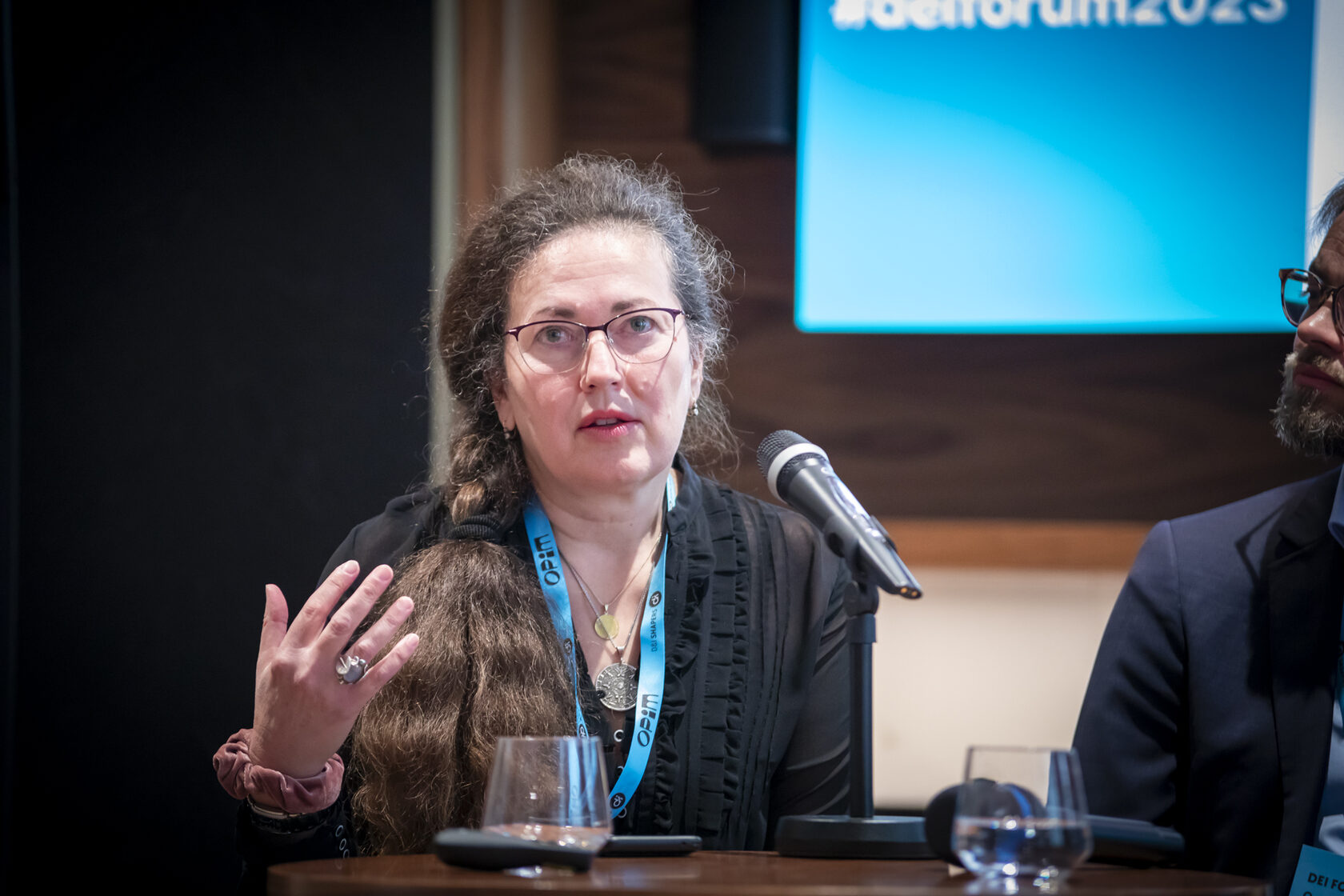The second annual conference was a gathering of top-level professionals from leadership, HR, marketing, L&D, and business development, all focused on championing diversity, equity, and inclusion in their organizations.
These are the data we have collected during our DEI Forum panel discussion on Impact of Equity on Organizations.
65% of the DEI Forum audience are experiencing diversity fatigue
For 34% is DEI just a 'tick off the box' in their company, and 66% answered that they actually have achieved the buy-in of their company.
We also collected questions from the audience, and took our time to give answers to some of them.
Kasper, Could you elaborate on the inclusive leadership training? What's the curriculum? Is it intended for C-suite / leadership teams to get them on board?
Kasper Jelsbech, Chief Consultant and Partner at Living Institute Denmark:
"Inclusive leadership training needs to include the following core competences:
Self-awareness: leaders must build up their self-awareness to understand how DEI is impacting them. This typically comes with a well-designed role-play or other experiential exercise that allows leaders to personally and emotionally connect with topics of inclusion, exclusion and unconscious bias.”
Managing diversity: leaders must have the knowledge to engage and motivate teams where people are very different from each other. This includes crafting a shared purpose and vision for the team and making sure everyone understands the value of diversity.
Being a role model: leaders have to act with courage to challenge biases and stereotypes and create psychological safety. This means that leaders should have the right tools to practice inclusive leadership and learn to apply these tools on real-life cases."
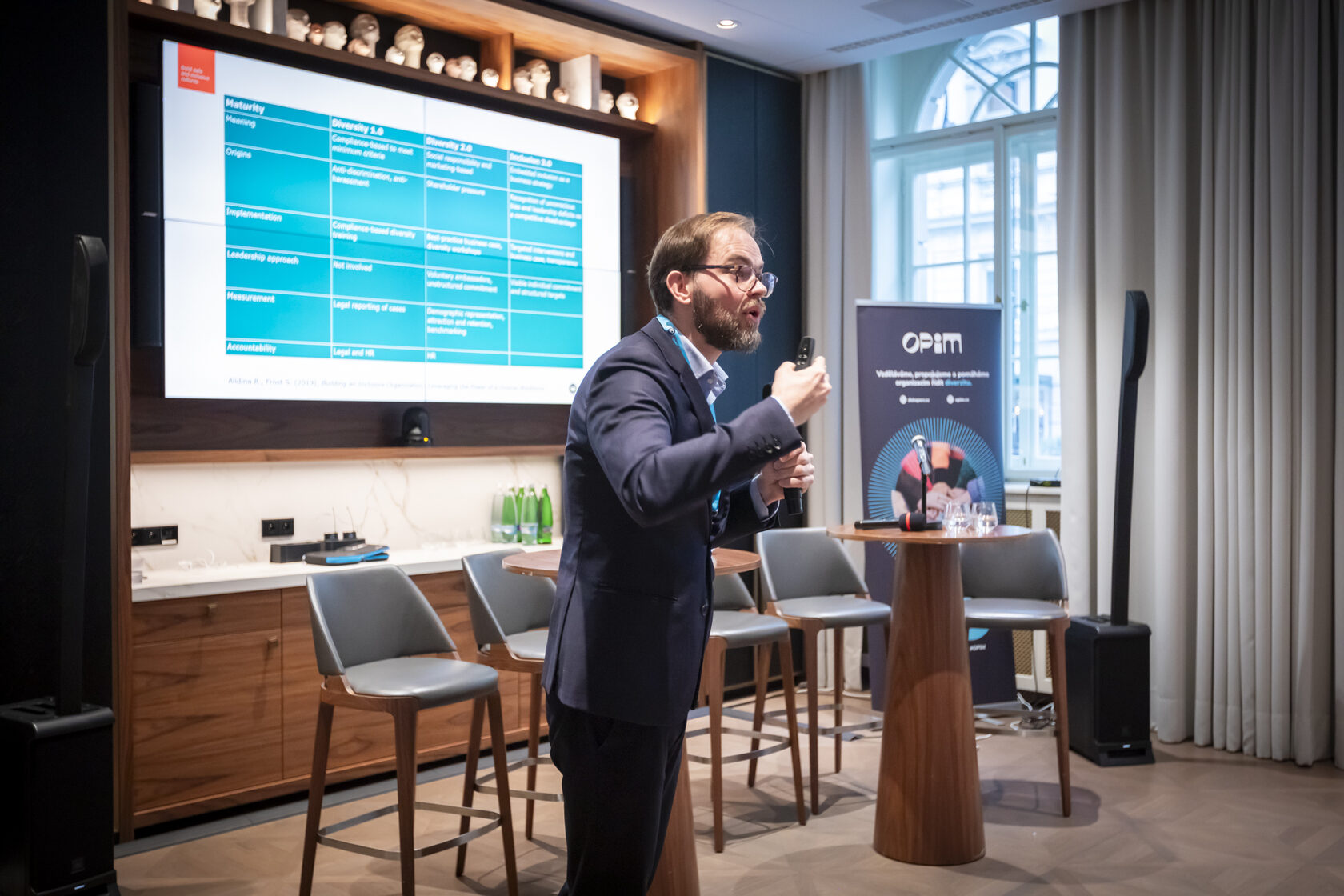
Do you have any tips on how to avoid the perception of so-called positive discrimination while implementing different DEI initiatives?
Kasper Jelsbech, Chief Consultant and Partner at Living Institute Denmark:
“Use bias busting methods in recruitment and promotion processes that allow you to select for competences only. There are many examples of this such as anonymizing applicants, pre-structuring interviews, using diverse panels etc.”
How to best avoid “the clash” of majority and minority when moving along the DE&I journey? Or if not possible to avoid, how to best navigate within the clash?
Jana Tikalová, founder and CEO, OPIM:
"Try to avoid so-called diversity tokenism and make an effort to minimize focus on one or two DEI topics/issues. Obviously the company cannot solve all the DEI challenges in one go. Surveys help you prioritize. If there is a conflict or the majority-minority clash, it needs your energy to communicate, explain, use data (those from surveys). Think also including initiatives that can help your DEI journey and relate to the majority, or even every employee, such as health and wellbeing."
Renata Mrázová, Group Chief People Officer at FNZ Group:
"The most important is open and authentic communication. Explaining why you run such D&I initiative. I can give an example of the program on the topic of menopause, which we communicated in our company again, for the second time. Last year we launched it and organized webinars. There were very surprising reactions. Many employees asked how many people such a program is relevant for that we actually organize it. So we explained and kept explaining that even if it is relevant for 5 people and it has a positive impact on them, their engagement, happiness and if that results in their better performance, it all does make sense. This year we had very high participation and also men joined the workshop. Explaining, communicating, using facts etc."
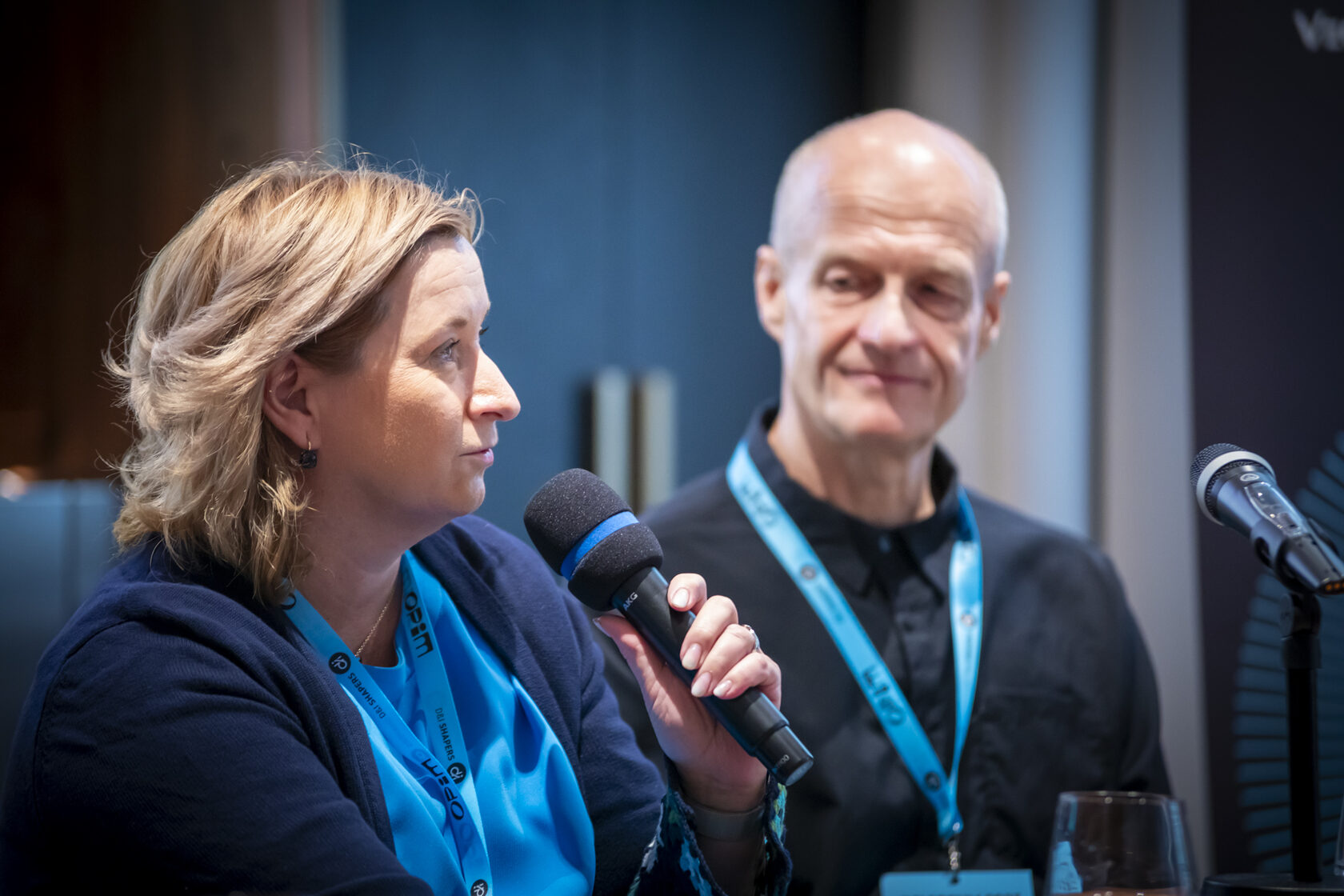
Could you share some of the challenges you have had to overcome in your companies in the DEI topic?
Jana Tikalová, founder and CEO, OPIM:
"In my consulting and training work in DEI for our clients I often witness many challenges. Let me share two: Fear. What DEI will bring to my team, my company, what they will think when we start DEI initiatives. This is a common fear for many leaders. And on the other hand fear by employees from losing a job, or promotions, because of quotas. The other challenge is a combination of tiredness and resilience. I speak to many HR people or DEI passionate managers who often go against the wall; the tempo of bringing a change or implementing an activity on D&I in their company, is far too slow. They need to have very high resilience in order to overcome their personal fatigue. These people are my heroes and heroines. I can understand these challenges, and my personal challenge is to help the clients eliminate them."
Have some of the questions of our DEI Forum audience resonated with you?
Do you belong to one of those people who want to foster professional growth in the field of DEI?
Register for firsthand information about the upcoming DEI Academy.
Very practical, engaging, using in-depth learning methodology with international expertise.
Do you belong to one of those people who want to foster professional growth in the field of DEI?
Register for firsthand information about the upcoming DEI Academy.
Very practical, engaging, using in-depth learning methodology with international expertise.
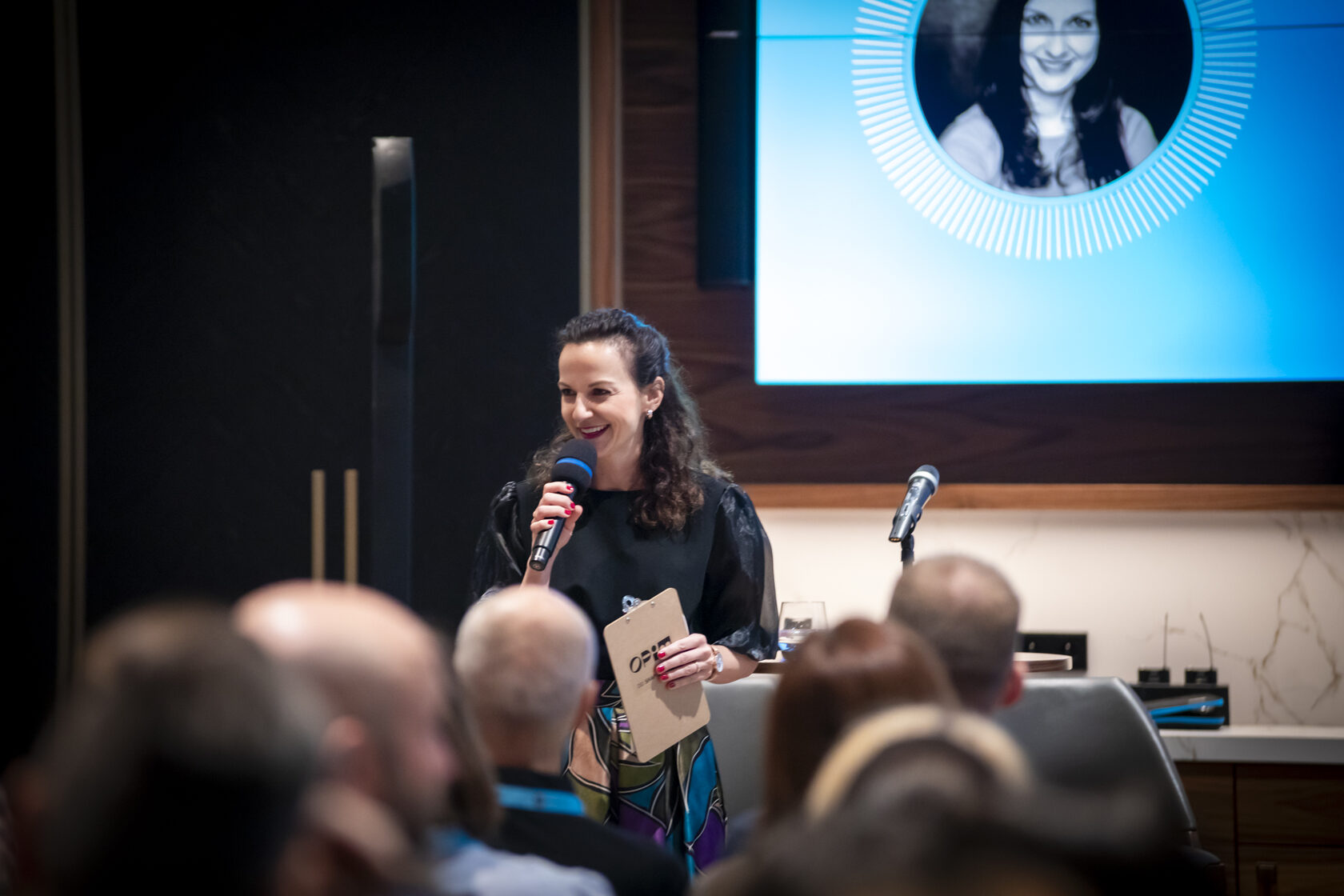
What personal challenges do you face? Do you experience diverstiy fatigue?
Jana Gajdošová, Operations and Communication, OPIM:
"Working in the DEI field is very enriching, but could be frustrating at the same time. It is not the type of work you leave behind the gates of the office. It is a very emotional topic and once you become an ambassador of DEI in the workplace, you continue to find these ideas and challenges in everyday life, in raising children, in accepting the needs of every person in your life, in watching the news and geopolitical situation, etc. - it's simply embedded in your mindset. That, on the other hand, is also a big advantage of this job, as this topic simply attracts people who are respectful, humble and thoughtful. And I’m very happy that I met a lot of these inspiring people in my job in OPIM and the D&I Shapers community."
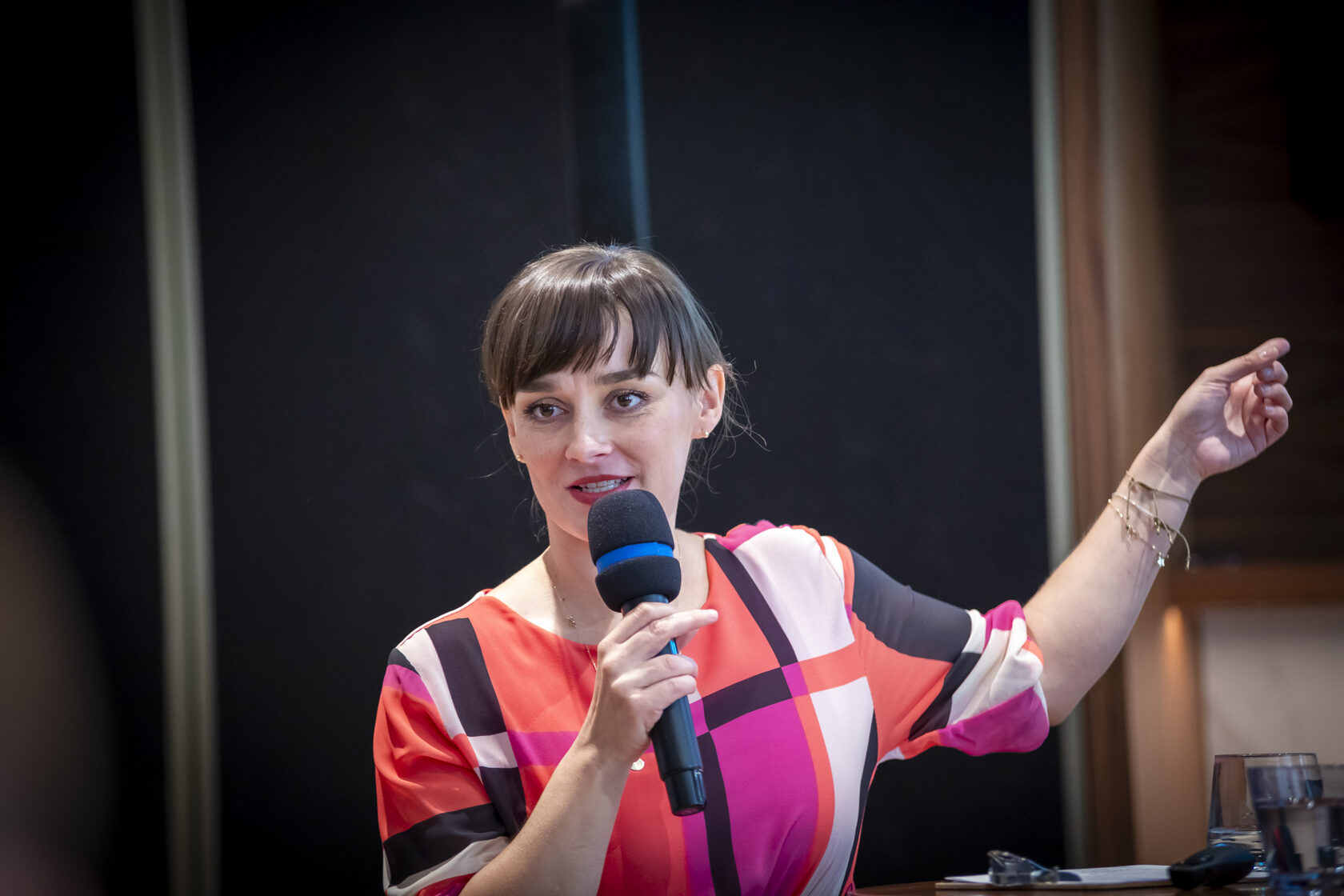
Where do you find knowledge and inspiration about DEI?
Jan Kotík, Education Project Coordinator, Škoda Auto, moderator of the panel discussion:
"I gather information from a diverse range of sources, especially from online resources. Staying up-to-date with current events and engaging in conversations with people from different backgrounds also helps me understand diverse perspectives. Inspiration can come from stories of individuals or organizations making a positive impact in the field of Diversity, Equity, and Inclusion (DEI).
My recommendations:
- On LinkedIn – follow people and organizations that deal with DEI topics. Examples: OPIM, European Commission, World Economic Forum, McKinsey, Harvard Business Review etc. You can get a lot of inspiration from other companies in your local market.
- Subscribe to newsletters (both local – OPIM, Pride Business Forum, etc.; and international: Harvard Business Review, World Economic Forum, Catalyst, McKinsey, etc.)
- Listen to podcasts – my popular one that often deals with DEI, is IdeaCast by Harvard Business Review
- Read news, there are always many inspirational stories on DEI. It is also very important to follow local/European politics
- Read the newest studies – every time there is a new study by the European Commission, McKinsey, World Economic Forum or an interesting article by Harvard Business Review – take your time to read. It could be tens of pages long, so reserve sufficient time to read it! Take notes/make a LinkedIn post with a summary!
- Watch TED Talks. These provide you with so many interesting insights.
- Conferences and workshops related to DEI – such as the DEI Forum or workshops organized by OPIM are a great source of inspiration.
- Cultural events. Theatres, movies – you might be surprised how much of DEI material there is in art. These are great sources of DEI storytelling.
- Books. If you like to read books, there are many great authors on DEI."
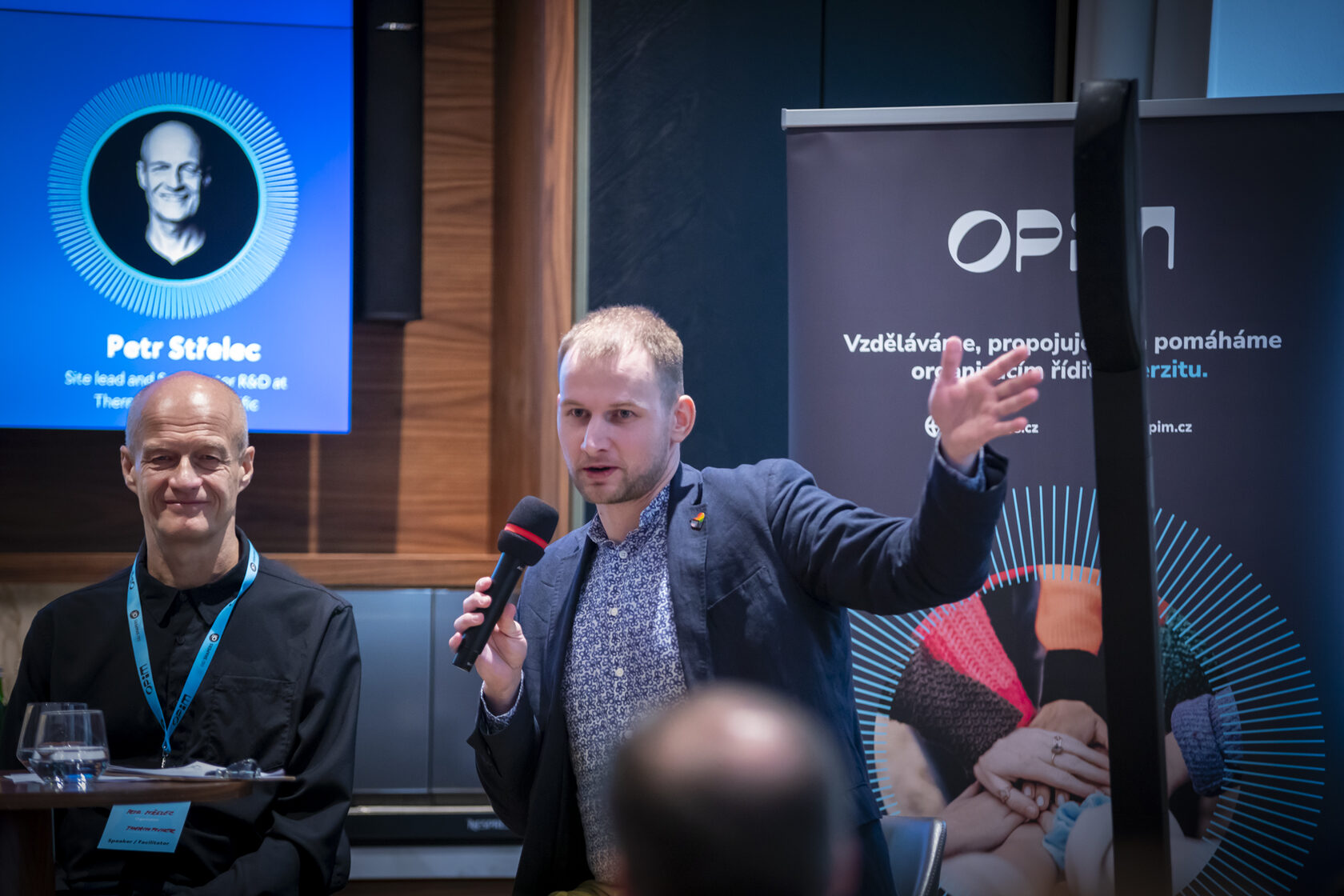
What do you think will be the topic of dei in 5-10 years?
Jan Kotík, Education Project Coordinator, Škoda Auto, moderator of the panel discussion:
"Predicting the future is always a bit tricky, but I imagine that the future of DEI will continue to evolve with a focus on intersectionality and systemic change. We might see increased emphasis on addressing issues related to technology, artificial intelligence, and their impact on equity. Additionally, there will definitely be more attention given to mental health in the workplace and creating inclusive environments that support well-being. As societal awareness grows, I hope to see a shift towards not just diversity and inclusion, but genuine belonging for all individuals. I am also confident that the role of legislation and its impact on DEI will grow – laws and regulations will play a more significant role in the future. One thing is clear to me – DEI requires a lot of time. There is never a „revolution“. It is a rather slow change process. Therefore, be patient, the change is happening, but it might seem rather slow at a first glimpse."
Tania le Moigne, Managing Director, Google:
"I believe that the world we live in and will be living in is very complex. And going through this complexity and the speed of change requires different skills. Diversity and inclusion are part of a values-based culture, and as such it cannot be owned by HR alone. It has to be owned by the leadership team, the CEO or founder, the entire leadership group, by the board of directors or the entire organization. If we fundamentally agree in principle to have multiple data sets, that we track as a leadership team, long-term, we can completely change the dynamics, the spirit and the environment of the company over the next 5-10 years to come."
